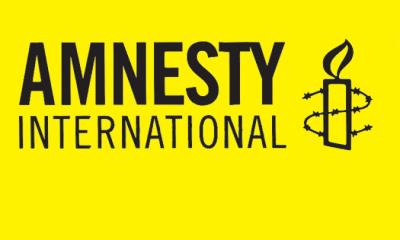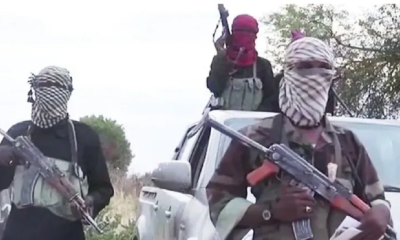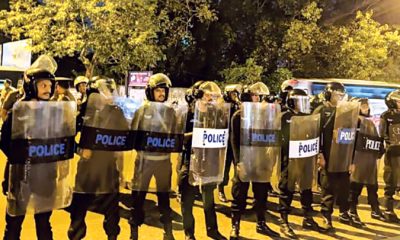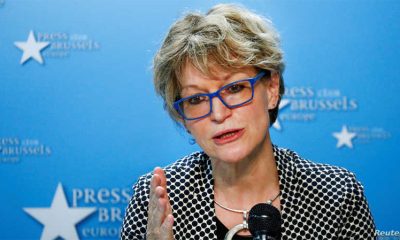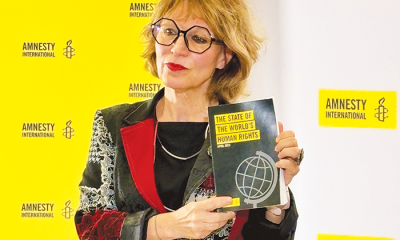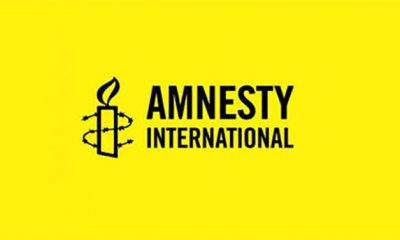News
Sri Lanka: Authorities’ crackdown on protest rights must end – Amnesty International
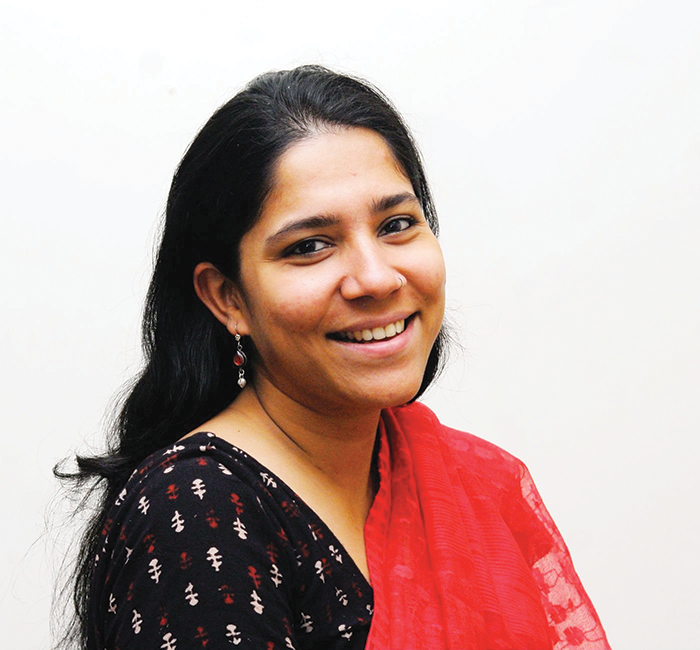
The Sri Lankan authorities have fiercely clamped down on protests and demonized protesters during a period of economic crisis and hardship in the country, Amnesty International said in a new digest released on Tuesday.
The briefing, ‘Penalized for Protesting: Sri Lanka’s crackdown on protestors’, details how the authorities have failed to protect peaceful protesters and resorted to excessive use of force, deploying the military to police protests and carrying out reprisals against protestors while also demonizing those who exercise their protest rights peacefully.
“Over the last few months, Sri Lanka has seen widespread protests over the worst economic crisis in the country’s post-independence history. People have the right to express discontent peacefully and the state has an obligation to facilitate this right but the Sri Lankan authorities have repeatedly and unrelentingly stifled the voice of the people,” said Yamini Mishra, Amnesty International’s South Asia Regional Director.
“The new government in Sri Lanka has continued resorting to the unlawful use of force, intimidation and harassment to subdue protestors, sending a chilling message to the people of Sri Lanka that there is no room for dissent. The right to freedom of peaceful assembly is a keystone of any rights respecting society. It must be respected and protected.”
It must be noted that there have been some incidents of violence during protests since the protest movement began in February 2022. While these protests cannot be deemed as peaceful, the response by the authorities to such protest must still comply with human rights laws and standards.
Since the protests began five months ago, the police and armed forces have routinely misused tear gas and water cannons against largely peaceful protesters. On two occasions, security forces fired live ammunition at protesters, killing at least one person in Rambukkana on 19 April.
This unlawful use of force was also witnessed in other key incidents demonstrating the government’s refusal to facilitate the right to peaceful assembly, despite their obligations under international human rights laws and standards.
Since President Ranil Wickremesinghe came into power on 21 July, over 140 protesters have been arrested, while a further 18 have been issued travel bans. Furthermore, Members of Parliament and the President have repeatedly described protesters as “terrorists”. President Wickremesinghe, meanwhile, also labelled protesters as “fascists” amid a broader pattern of demonizing the protest movement. The authorities have taken this one step further by weaponizing the draconian anti-terror law Prevention of Terrorism Act (PTA) to arrest three protesters. Amnesty International has, in the past, documented the use of the draconian PTA by the authorities to target, and harass minorities, activists, journalists and critical voices. The PTA is in violation of international human rights law and must be repealed.
Since 2 April, the authorities have arrested some people in a manner that flouts due process. Security forces did not produce official identification or produce arrest warrants or adequately explain the reason for arrests. Certain individuals were taken away and held for several hours at undisclosed locations. On these occasions, no confirmation of arrest was issued, nor were detainees given the opportunity to inform their relatives, friends or lawyers of their whereabouts.
One of the protestors told Amnesty International: “I’m still worried that they are trying to arrest me and accuse me of things I have not committed, because they want me in jail.”
These arrests, which constituted unlawful deprivation of liberty, should immediately be stopped and the authorities must carry out arrests in keeping with their obligations under the international law and standards, including the ICCPR which prohibits arbitrary detention and protects the right to liberty and security of person. The authorities must also end their use of Emergency Regulations, which give sweeping powers to the police and the armed forces to search and make arrests without due process safeguards and have been shown to flout international human rights law.
Another protestor, who suffered repeated harassment at the hands of the authorities, told Amnesty International: “Many of us got travel bans, and surveillance and tear gas attacks and baton charged and, at times, court orders and imprisonment… The state is always protecting and only defending political power and does not stand on the side of the people.”
Amnesty International calls on the Sri Lankan authorities to drop all charges against those protesters who were participating peacefully in so called “unlawful assemblies”. All those facing such charges must be immediately released. The authorities must also hold prompt, transparent and impartial investigations into all allegations of attacks on peaceful protesters, with support from international observers.
“The relentless repression of the right to freedom of peaceful assembly, movement and expression speaks to Sri Lanka’s legacy of suppressing dissent. Given the immense and historic support for the peaceful protest movement, the Sri Lankan authorities should change course and immediately end their suppression of people’s right to protest,” said Yamini Mishra.
News
FSP asks govt. to pull out of defence deal with India

The Frontline Socialist Party (FSP) yesterday demanded an immediate termination of what it called a “secretive and dangerous” defence agreement signed between Sri Lanka and India, during Indian Prime Minister Narendra Modi’s 05 April visit.
Addressing a press conference at the party’s headquarters in Nugegoda, FSP Education Secretary Pubudu Jagoda described the agreement as a “betrayal of the nation” and a “crime against the people,” urging the government to invoke Article 12 of the deal and exit it with the required three months’ notice.
Jagoda said the document, which surfaced on social media after being published by a news portal, appears to be the actual agreement signed between the two countries. “The government has not denied its authenticity. That silence is telling,” he said.
Jagoda added that the agreement bears the signatures of Sri Lanka’s Defence Ministry Secretary Sampath Thuiyakontha and Indian High Commissioner Santosh Jha.
“What’s most troubling,” Jagoda warned, “is that both governments attempted to keep the agreement under wraps. Unlike the 1987 Indo-Lanka Accord, which was made public with all annexures, this agreement was hidden from the people, and even now, we don’t know how many other agreements exist between India and Sri Lanka.”
Jagoda said that a Right to Information request made on 04 April was met with a reply from the President’s Office stating that it had no copies of the agreement—raising serious concerns about transparency, even at the highest level. “One could question whether the President has seen it because his office does not have it,” Jagoda said.
The 12-clause of agreement reportedly covers areas such as exchange and training of military personnel, defence industry collaboration, classified information protection, and military medical services, including battlefield healthcare and telemedicine.
Jagoda said the definition of “classified information” in Clause 7 was alarmingly broad. “It allows India to label virtually anything as secret. Even weapons or military assets transferred under this agreement cannot be revealed—not even after the agreement ends,” he said, citing Clause 7.3.
Clause 10 prohibits either country from taking disputes to international courts or involving third-party mediators. “It’s like asking a rabbit to negotiate with a tiger,” Jagoda quipped, drawing parallels to the complications of the 1987 accord, which eventually saw Indian peacekeeping troops refusing to leave until a change in the Indian government.
Jagoda accused the NPP-led government of hypocrisy, pointing out that the JVP, the main component of the current regime, had vehemently opposed Indo-Lanka Accord in 1987. “Now they’ve gone and signed an even more dangerous deal,” he said.
Citing Clause 12, which allows either party to withdraw with three months’ notice, the FSP called on the government to act immediately to exit the pact. “We urge the people to unite and defeat these underhanded, sovereignty-eroding deals. The FSP stands ready to lead that fight,” Jagoda said.
News
Police crush protest, arrest student activists
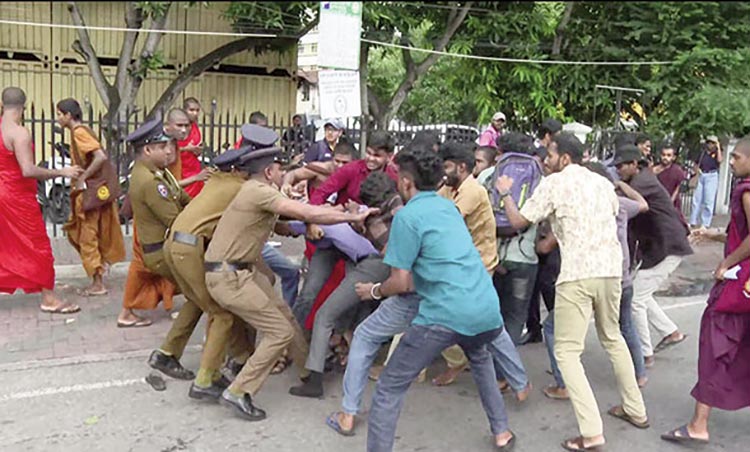
The police yesterday arrested a group of students, including the Convener of the Inter-University Students’ Federation (IUSF), Madushan Chandradith, during a protest held by the Allied Health Science Graduates’ Union in front of the Health Ministry yesterday.
The police obtained an order from Maligakanda Magistrate’s Court, earlier in the day, to prevent protesters from invading the Colombo Hospital Square and the Health Ministry.
News
Deshabandu faces misconduct probe on Monday

Inspector General of Police T.M.W. Deshabandu Tennakoon is set to face formal questioning on Monday (19 May) over serious allegations of misconduct and abuse of power, parliamentary sources said yesterday.
A special Committee appointed to investigate the claims will commence formal proceedings next week, following several rounds of preliminary discussions held within the parliamentary complex in recent weeks.
The IGP has been officially notified to appear before the Committee and is expected to face the inquiry for the first time at 2:00 PM in Committee Room No. 8.
The Committee, which met again on Thursday (15) to finalise arrangements, is investigating allegations that Tennakoon misused his official powers in a manner deemed severe and improper.
-

 Features7 days ago
Features7 days agoSAITM Graduates Overcome Adversity, Excel Despite Challenges
-

 Opinion7 days ago
Opinion7 days agoDrs. Navaratnam’s consultation fee three rupees NOT Rs. 300
-

 News7 days ago
News7 days agoDestined to be pope:Brother says Leo XIV always wanted to be a priest
-

 Sports7 days ago
Sports7 days agoASBC Asian U22 and Youth Boxing Championships from Monday
-

 Features6 days ago
Features6 days agoChampioning Geckos, Conservation, and Cross-Disciplinary Research in Sri Lanka
-

 Business7 days ago
Business7 days agoDilmah – HSBC future writers festival attracts 150+ entries
-

 Midweek Review4 days ago
Midweek Review4 days agoBronze statue for P’karan, NPP defeat in the North and 16th anniversary of triumph over terrorism
-

 News2 days ago
News2 days agoChikungunya spreading rapidly in Colombo and suburbs



